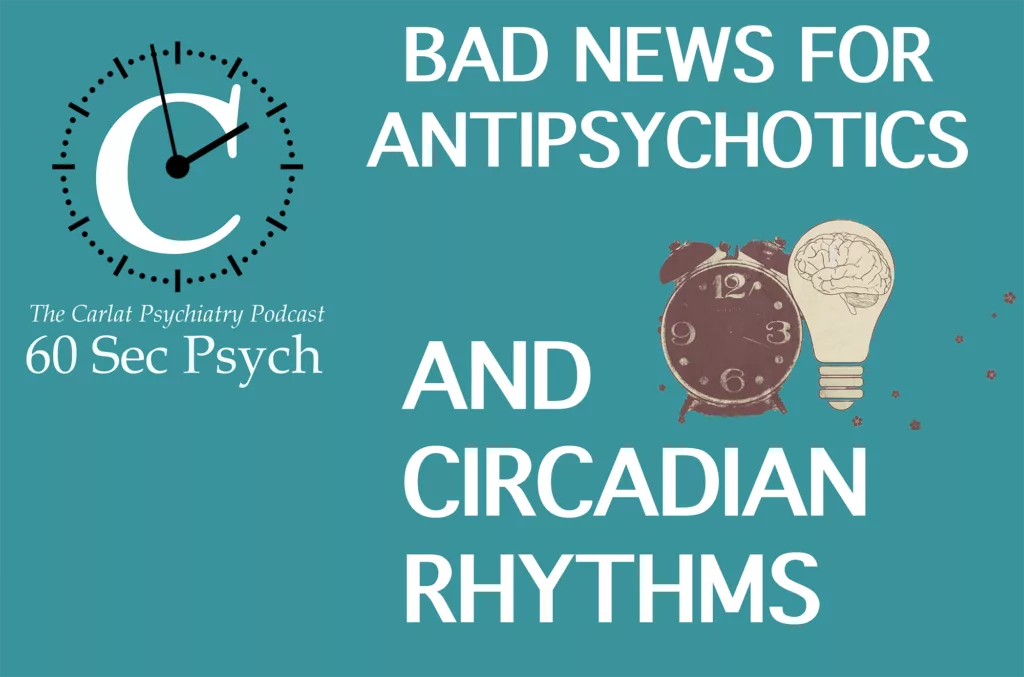Schizophrenia, autism, addictions, borderline personality disorder, nearly every psychiatric disorder is associated with disrupted circadian rhythms. It’s particularly true for bipolar disorder, where circadian rhythm disturbances are involved from the behavioral to the genetic level. All of these disorders are treated from time to time with antipsychotics, so how do antipsychotics affect sleep and circadian rhythms? This new systematic review offers some answers. [Link]
Published On: 11/25/2020
Duration: 2 minutes, 53 seconds
Transcript:
Schizophrenia, autism, addictions, borderline personality disorder, nearly every psychiatric disorder is associated with disrupted circadian rhythms. It’s particularly true for bipolar disorder, where circadian rhythm disturbances are involved from the behavioral to the genetic level. All of these disorders are treated from time to time with antipsychotics, so how do antipsychotics affect sleep and circadian rhythms? This new systematic review offers some answers.
The results are not encouraging. Antipsychotics dampen the peak in morning cortisol that helps to set the circadian rhythm. 21 studies looked at this cortisol effect, and the results were actually not very consistent, so to arrive at something like an answer the authors attempted to meta-analyze those 21 studies by combining their results. That analysis suggested that antipsychotics due dampen the cortisol rhythm, and the effect was more pronounced among the atypical antipsychotics.
Daily fluctuations in temperature are another aspect of circadian rhythms, and antipsychotics across the board tended to flatten that temperature curve. SSRI antidepressants also have a flattening effect on the body temperature cycle. However, antipsychotics did not seem to affect melatonin.
Those are the hormonal effects. What about the behavioral effects? How do antipsychotics affect circadian behaviors like sleep, waking, and daily activity? Quetiapine improved sleep and sleep quality in some controlled trials. Some of the other atypical antipsychotics (risperidone, clozapine, and aripiprazole) improved circadian behaviors in case series, such as normalizing sleep patterns in extreme night owls, but case series are not very reliable. On the other hand, typical antipsychotics like haloperidol and flupentixol tended to disrupt daily rhythms in the case series and case reports.
Most of the studies were done in schizophrenia and bipolar disorder, and the dampening of circadian rhythms was seen in both diagnostic groups.
Why does this matter? Disrupted circadian rhythms – such as irregular wake times, excessive nighttime activity, and flattening of the morning cortisol peak – are associated with poor mental and physical health. They’ve been linked to depression, bipolar disorder, poor concentration, obesity, diabetes and cancers. Several therapies for bipolar disorder – including light therapy, dark therapy, social rhythm therapy, and even lithium – directly repair the biological clock. This paper raises some intriguing questions about the widespread use of antipsychotics to stabilize mood, but doesn’t fully answer them.
Got feedback? Take the podcast survey.


_-The-Breakthrough-Antipsychotic-That-Could-Change-Everything.webp?t=1729528747)



